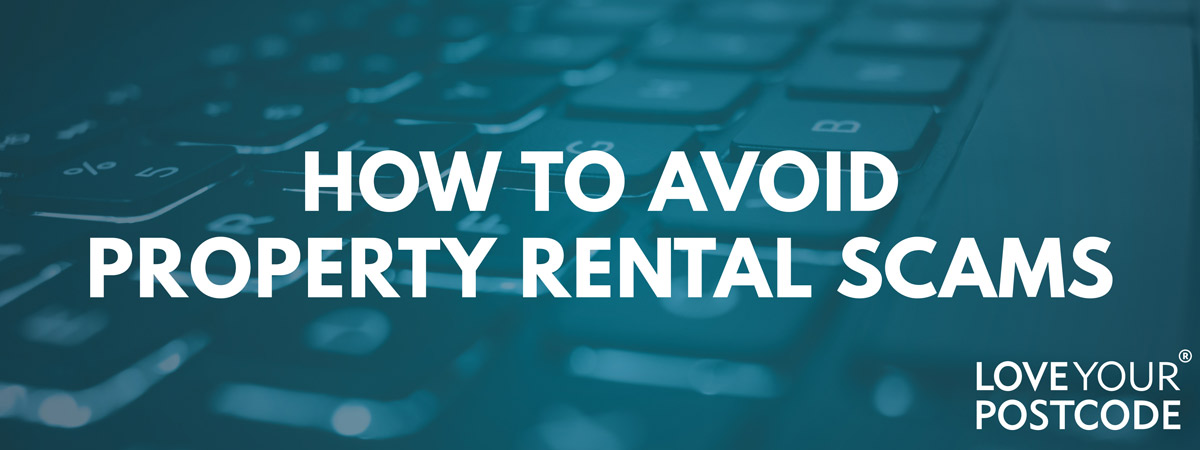Property rental scams becoming more frequent these days, so we suggest caution when moving property. How do you avoid these scams?
Do you have to move to another city to study or work and looking for a house to rent? Are you planning your next holidays and would you like to rent a cottage near the sea? If so, you’ve probably looked at both specialized estate agencies like Love Your Postcode group, and other miscellaneous ads on the internet.
While it is a good idea to do these searches on the internet (as on the internet generally you save money), you must also be very careful as property rental scams are never too far away when searching the net far and wide for the best deals.
If you’re ready to learn more, dedicate a little of your time to reading this article and you’ll know how to recognize the rental scams circulating the web, in order to avoid them.
How to recognize and avoid online rental scams
It’s time to take action and learn how to avoid online rent scams. Ask for more and more information about the dwelling you are looking for to avoid unpleasant surprises. Learn, for example, about the energy class of the home and try to find out if there are any hidden defects such as mortgages, tax assessments and so on.
Look for a rental property using the most trusted property sites
If you want to avoid falling victim to an online scam, it’s important that you search the most trusted property ad sites in the UK. Rather than relying on generic ad sites, use web portals that deal exclusively with the rental of properties, such as the well-known Rightmove, Zoopla or Prime Location. We have spoken extensively about these sites in an article dedicated to property websites. These sites only publish property ads from verified estate agencies.
Airbnb can be useful for short-term stays as there are clear feedback reviews that allow you to discover quite easily when a user is reliable or not.
Verify the trustworthiness of the rental ad
Verifying the trustworthiness of the ad is essential to avoid online scams. How can you do this? Well, if the web portal that you used for your research integrates a feedback system, make good use of it: check the ratings released by the users to the advertiser and, above all, read the comments to get more details about its reliability.
More importantly, check the reliability of data entered in the ad by verifying whether the information in the ad is real or not. For example, if the advertisement states that the apartment to be rented is located in “x” street, verify this information by going to that address (if possible) and/or trying to find some feedback on the Internet using, for example, Google Maps or Google Street View.
One of the most important aspects you should pay attention to is the price. If it is inexplicably lower than the average of other rents in that area, there is a good chance that it is too good to be true. So, look at the price!
Verify images of the rental ad

There are also other “alarm bells” that should hint that you are looking at a rental scam advertisement. One of these concerns is that the photos published by the advertiser usually show a new or newly renovated apartment, well furnished and equipped with any appliance and comfort, although the price indicated in the advertisement is inexplicably low for that quality.
These photos are too perfect and were, very often, downloaded from the internet. The simplest way you can find out if a picture was taken from the internet is by doing a reverse search on Google Images. If the photos included in the ad do not convince you, try asking the advertiser to send you more.
If they are willing to do this without any problems, this is in itself a good sign. On the contrary, if he is reluctant to do this, the advertiser is probably a fraudster.
Verify the trustworthiness of the advertiser

Checking the trustworthiness of the advertiser is important to avoid running into a property rental scam. So try to get as much information as possible about the person who is proposing the deal. In addition to the first and last name, ask them to provide you with their mobile number and especially their landline if available. If the presumed homeowner is unwilling to provide you with his telephone numbers, they could be trying to hide something from you.
If you want to try to get some more information on the advertiser, try also to do a search on the internet; typing his name and surname on a search engine (eg Google or Bing) to some find testimonies of any other cheated persons.
More importantly, carefully evaluate the requests made by the advertiser and his way of dealing with you. If they make strange requests, like requesting money (the famous deposit) without you even having seen the apartment, do not consent because you risk losing it. When you do pay a deposit, pay via credit card instead of cash for added protection.
Rent a house with a trusted estate agent

Of course, you can avoid all this trouble by renting with Love Your Postcode estate agents. We’re one of the most trusted names in the UK and proud of our reputation as professional estate and letting agents. Thousands of homeowners have trusted us to sell/rent their homes. We are a modern performance focused estate agent offering all the services a traditional estate agent does, but better.
You may have often heard about SSTC in the property world and wondered what it means. Read our article SSTC meaning and find out what signifies.
If you are looking to move into a new home, Love Your Postcode Group is here to help you. With us, you’re guaranteed a trusted partner that knows the property market better than anyone, with an experienced staff that anticipates your every need. Contact our teams today, call us on 0800 862 0870 or book your free valuation.
By









